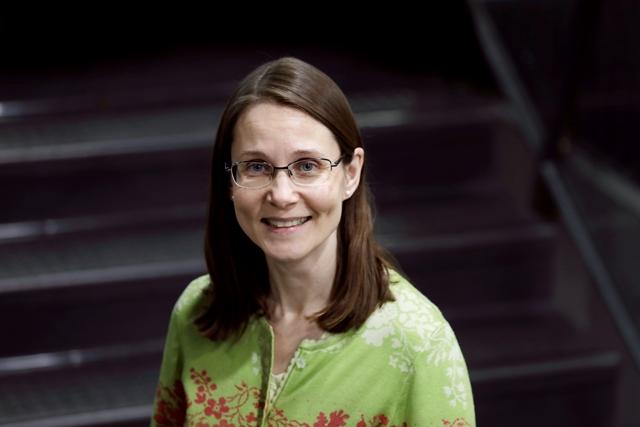Sari Kujala is Vice Chair of the DigiIN Consortium and the leader of the subproject ‘Preventing social exclusion with usable, accessible and engaging digital services’.
Sari Kujala
Psychologist, PhD (Human-Computer Interaction). I am a senior university lecturer, so I both teach and carry out research.
What are you currently doing within the DigiIN project?
I am Vice Chair of the DigiIN Consortium and project leader for one of its subprojects.
Preventing social exclusion with usable, accessible and engaging digital services
What are the main objectives of the DigiIN project?
The most important objective is to produce scientific information and practical solutions to ensure that as many Finns as possible can, if they so desire, benefit from and enjoy digital services.
What are the key topics for your focus area?
In particular, we study the quality of digital services and how they can be designed to be accessible to everyone, usable and cost-effective.
How is the research done and how are the answers found?
We use interviews and surveys to study people’s experiences of current digital services and the benefits and challenges associated with them. With the interviews, we seek especially to understand the everyday life of older people and how digital services could help them.
This spring, we are also testing the usability of symptom checkers for people with intellectual disabilities and older people. The aim is to find out how the cognitive accessibility of services containing difficult medical terms can be developed to make it easier for everyone to use them.
What results have been obtained?
Older people experience practical benefits from digital health services, for example by being able to check laboratory results, but there is still room for improvement in the clarity and ease of use of these services. Another area for development is the use of digital services to support lifestyle changes such as weight loss in an interactive and motivating manner.
How do you see the future of digital services?
The number of digital services will continue to increase, but hopefully in the future we will focus more on their quality and human-centred features rather than simply on the quantity. Digital services are aids; they do not replace people.
Why are digital services important?
Digital services help people to manage their affairs and empower them to participate in their health care. Many illnesses can be prevented or their progress slowed down when low-threshold assistance is provided and people are supported to make lifestyle changes. During the coronavirus epidemic, they can also be used to reduce levels of physical contact.
Is there a topic or activity that you think cannot or should not be digitised?
Doctors, physiotherapists and other professionals must be able to see their patients when dealing with complex cases, as people are not always good at verbalising their problems and comprehensive treatment requires face-to-face encounters. Also, not all customer groups can access digital services.
What digital service do you use yourself (in your work or in your leisure time) and could recommend to others?
I use the Duodecim’s Terveyskirjasto.fi service both at work and in my leisure time. We are designing usability tests for symptom checkers and have used Terveyskirjasto to check the typical disease symptoms. Terveyskirjasto is a reliable source of information on illnesses, medicines and self-care, so I can warmly recommend it.
Have you had problems with any of the digital services you are using – how did you solve the problem or how would you like to see the service develop?
This indeed happens regularly, and to IT professionals as well. Recently, online food stores have been unexpectedly difficult to use. It would be great if the product list showed the full name of the product, if there was a more reliable search function and if the results could be filtered to show, for example, only vegan options. It would also be good if one’s shopping cart would automatically be saved so that shopping cart selections would not disappear halfway through the process.
What do you do when you want to take a break from your research work?
At this time of the year, I go skiing or participate in an online aerobics session.
